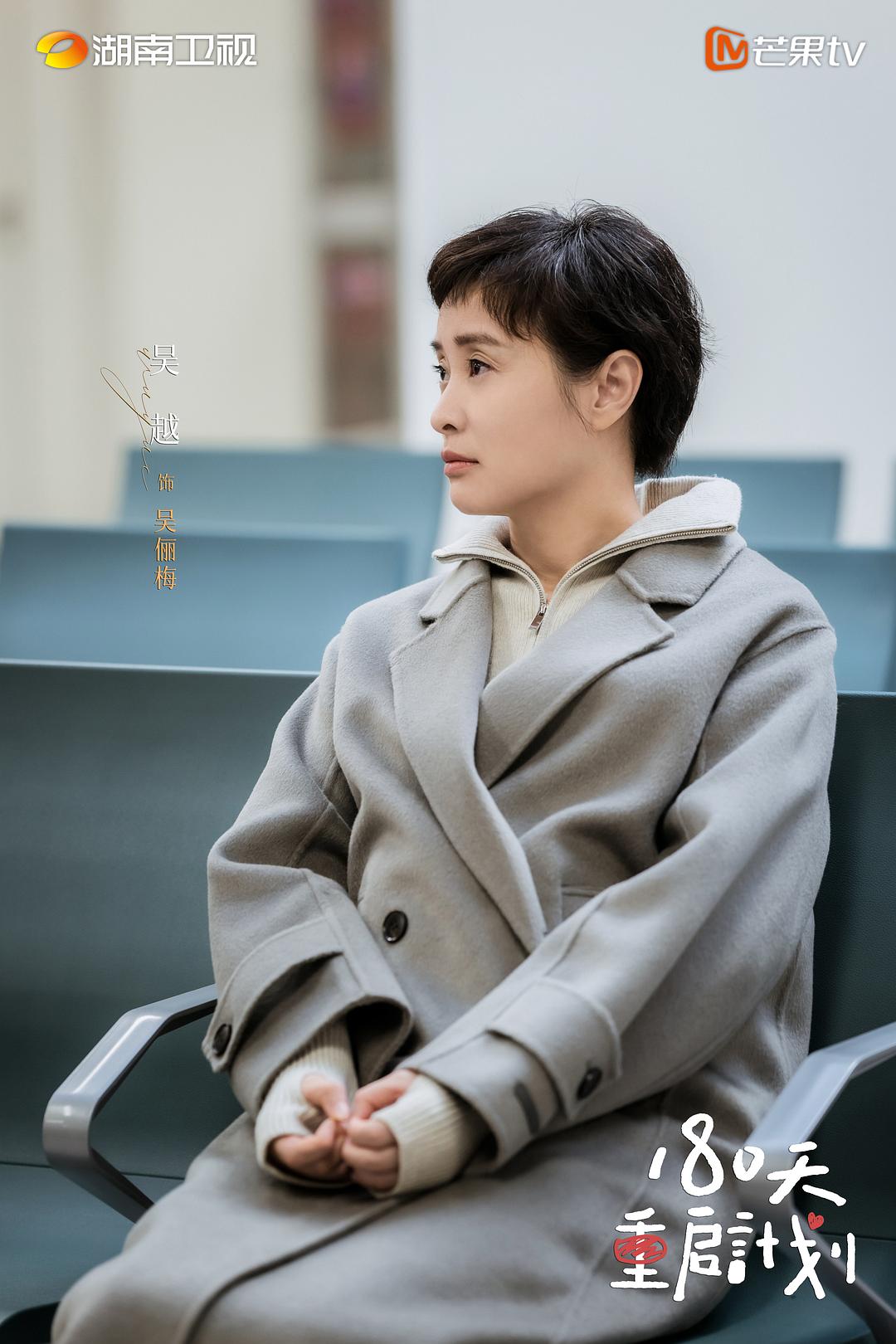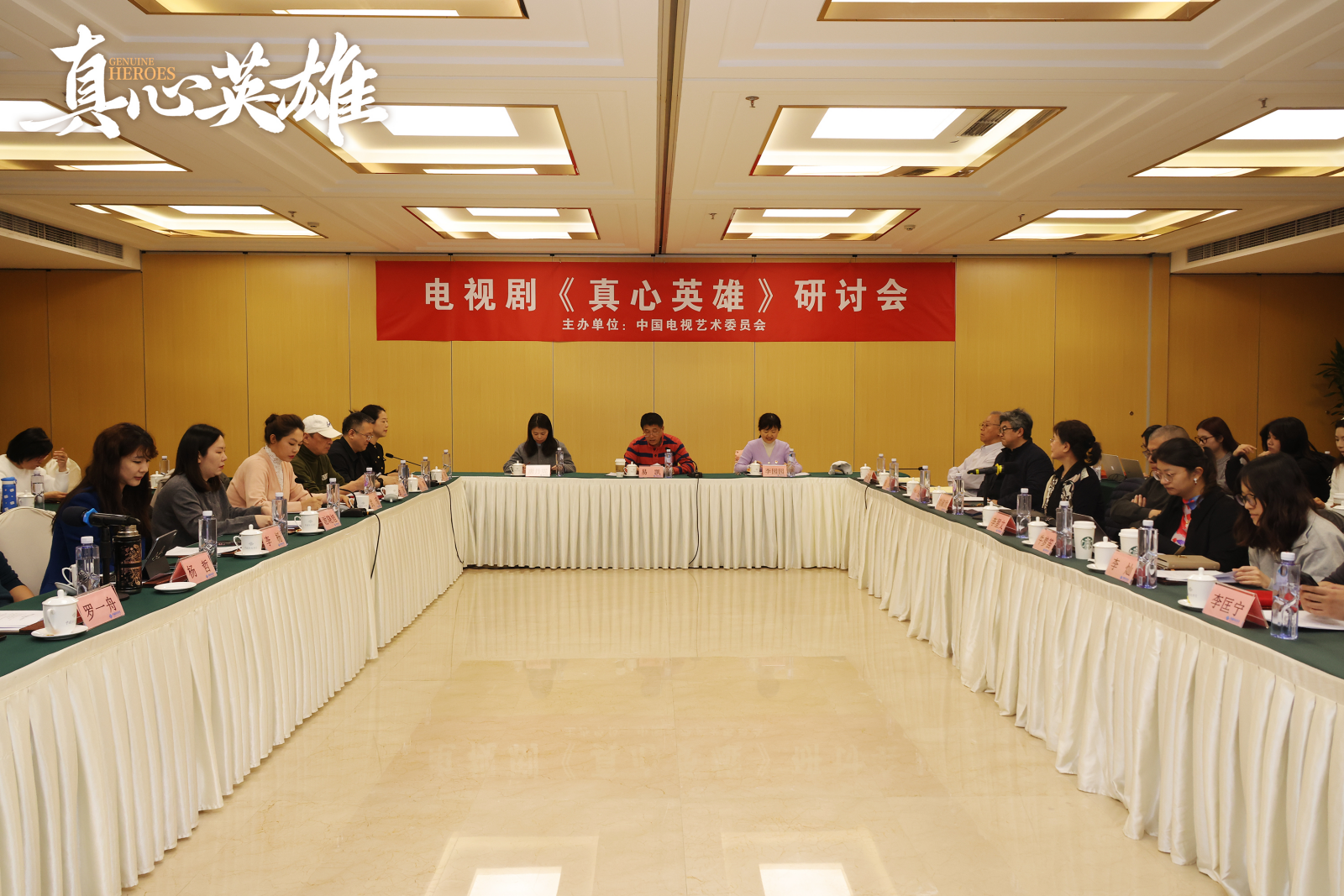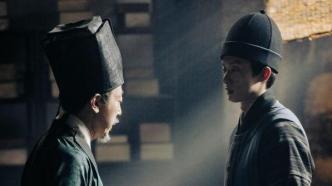
"Under the City" may be the only drama this year that I watched at full speed from beginning to end and didn't dare to lose focus for a second. Amazing, really amazing, and even more amazing when I saw that this was actually a work written and directed by a new director.
I have to admire what Tencent has in X Theater. In just six months, it has launched three dramas, including "The Long Season" and "Happy Face" with its unique style and theme. The basic strength can be seen above.
After checking the director's resume, I found that he is a senior advertising person and has also created a self-media account for Station B's film and television commentary with millions of fans. In the past, people from the media used to comment on movies and TV series. Once the comments were more serious, the most common sentence in the comment area was "You can do it, you get better." Hey, "Under the City", people got it, so what?
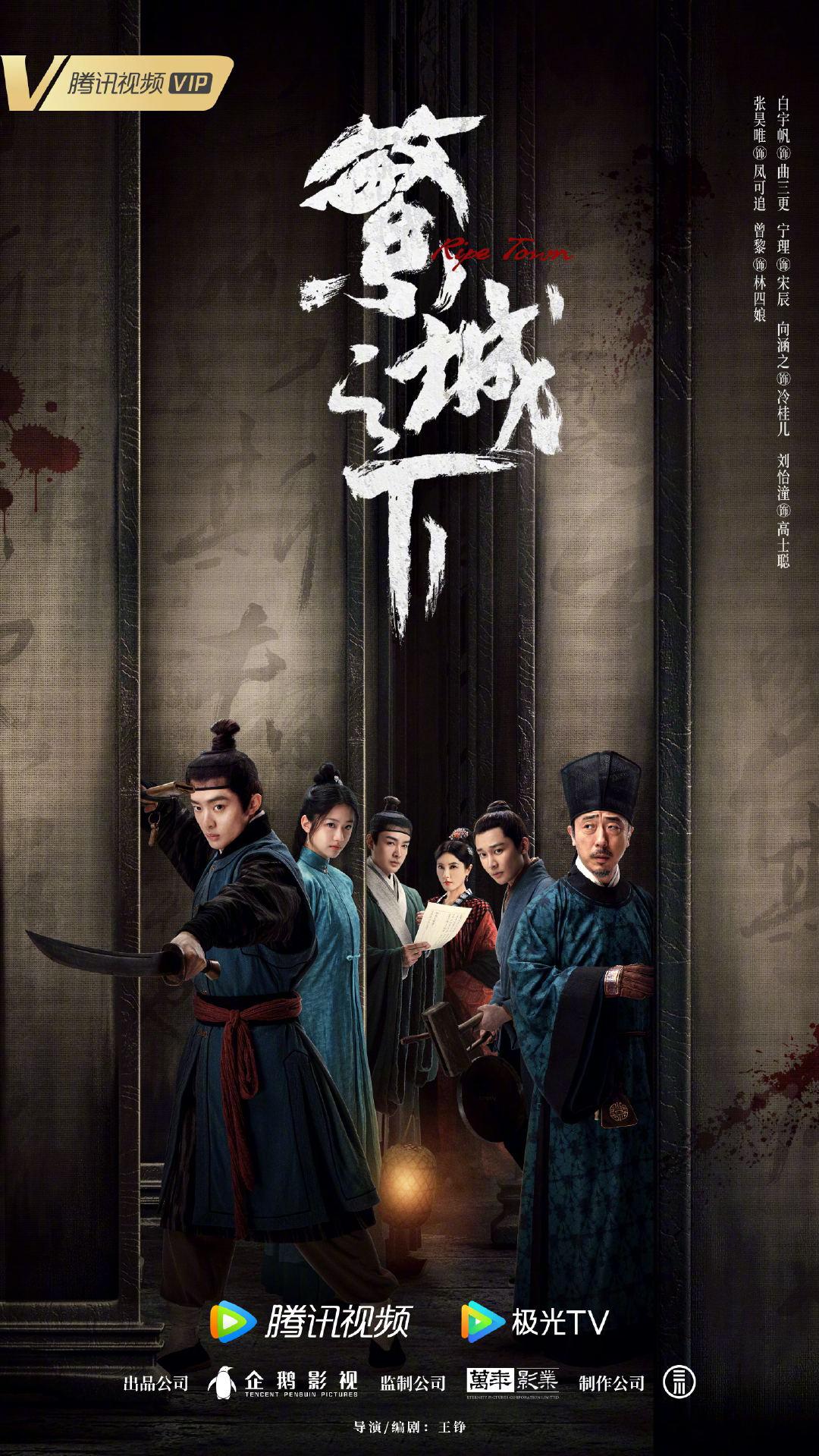
"Under the City" poster
The historical background of the play is set in the Wanli period of the Ming Dynasty, in a fictional small town in Jing County. Several serial murders linked to the massacre of arson and family extermination twenty years ago. Twenty years ago and twenty years later, several people appeared one after another, and different time and space were complicated and intertwined, making it a suspense drama. The story is meticulously arranged, and the final conclusion of the twelve episodes basically leaves no clues about the previous layout.
The aesthetic style also reflects the director's aesthetics. Visually, the composition and tones make the author, who has been traumatized by heavy-skinned and highly saturated costume dramas for many years, finally breathe easier. What is particularly rare technically is that the big action scenes of capturing the monkey demon in the sixth episode had many scene changes, many dispatchers, and it was a night scene, so it was quite difficult, but the new director completed it very clearly and neatly. There is logic.
The difficulty in good action scenes lies in action logic and action narrative. Who fights whom? Who is chasing whom? From where to where? How to reverse the strong and weak in the process of moving, and how to live and die on the line, action scenes still have to bear the narrative task, rather than what some viewers and even practitioners think, "the fight is beautiful" and that's it.
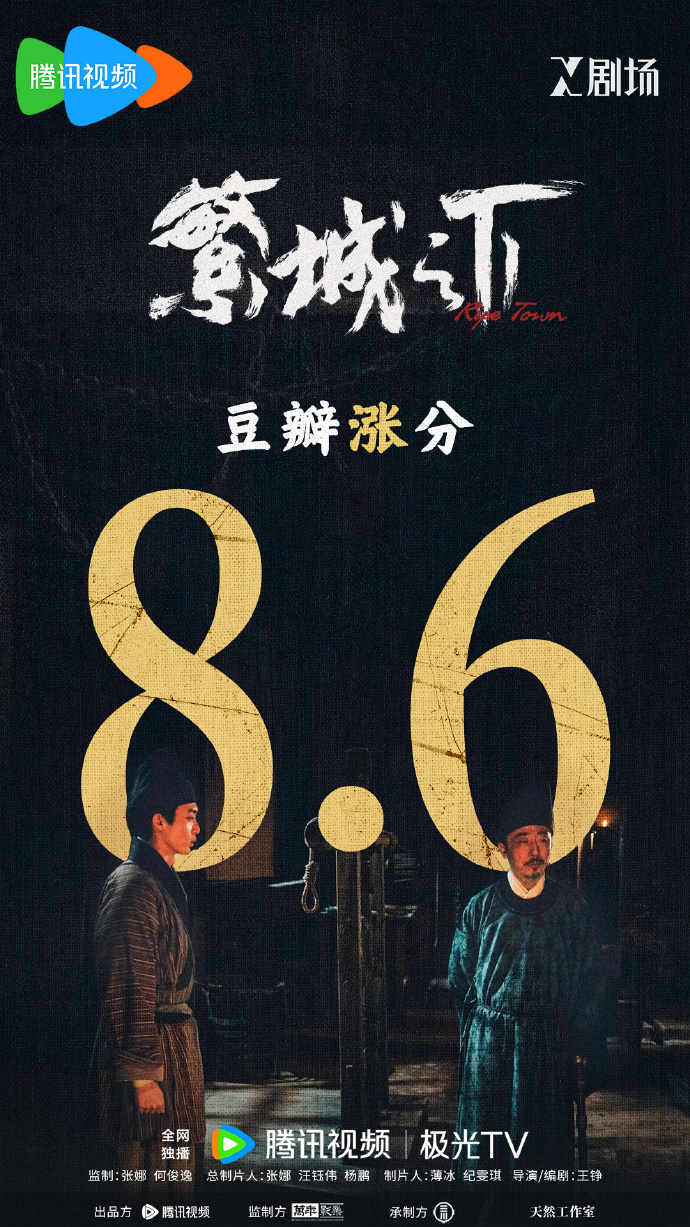
"Under the City" scored 8.5 points on Douban. As of 17:00 on October 23, the score has risen to 8.6 points.
The word "hatred" and the word "class"
To discuss the drama "Under the City", we cannot leave its historical background of "Wanli Period". In today's environment where many costume dramas are trying to save time (to avoid censorship risks and avoid the trouble of historical research), the real historical background of "Under the City" must have its narrative necessity. When creators conscientiously construct stories based on our real historical and cultural strata, observing TV dramas from the depths of history becomes a new kind of fun for us viewers or commentators to get behind the stories.
In the sixth year of Longqing, Ming Shenzong Zhu Yijun came to the throne, and the following year it was changed to Wanli of Yuan Dynasty. In the first ten years of Wanli, the affairs of the court mainly relied on Zhang Juzheng, a bachelor in the cabinet. After Zhang Juzheng's death, Shenzong was also diligent in his administration for a time, but the good times did not last long. Later, Shenzong became lazy in political affairs and ignored government affairs for decades. When the "History of the Ming Dynasty" was revised in the early Qing Dynasty, he quoted the common view at the time and wrote: "The commentators say that the Ming Dynasty died, but the actual death was due to Shenzong." Qing Dynasty historian Zhao Yi expressed the same view more clearly: "The commentators say that the Ming Dynasty died. , not to die in Chongzhen, but in Wanliyun." It is a public opinion that the Ming Dynasty at that time was politically corrupt, financially exhausted, and surrounded by crises.
Taking the Wanli period as the historical background, "Under the City" is necessary: as a story with the theme of "revenge", each of the main characters' grievances has its historical origins. Each of these grievances has ample room for interpretation and recollection because of its historical background. And these "grievances and hatreds" cannot avoid the word "class" and the word "master and slave".
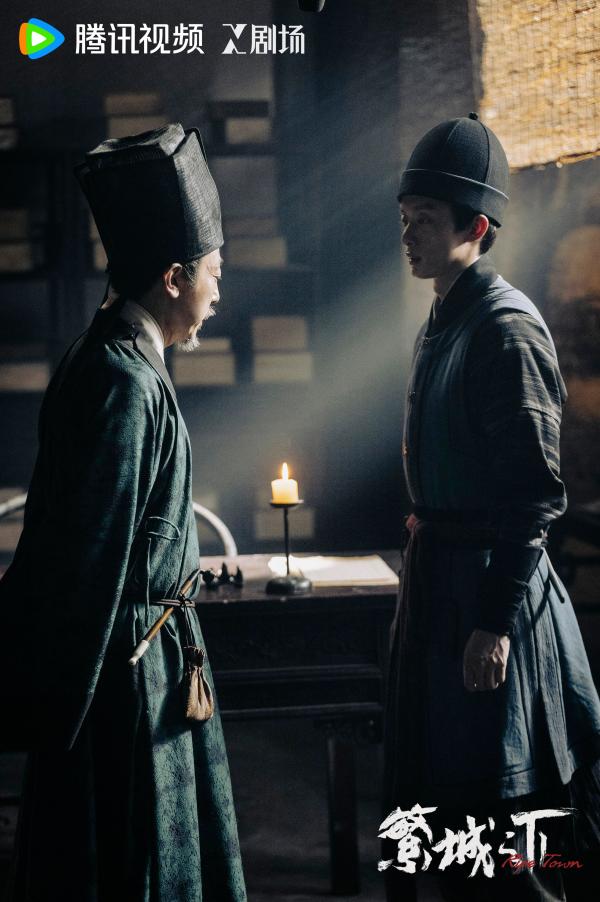
Stills from "Under the City"
The revenge in the third update of the play is the tragic death of Master Leng Captou. After learning the truth, facing the magistrate, a murderer whose class was much higher than his own, he believed that he was unable to complete his revenge and "it was difficult to redress the injustice", so he had no choice but to rely on borrowing a knife to kill people and fight evil with evil. Ironically: Only evildoers of the same class are qualified to kill each other.
But what’s interesting is that Captain Leng is actually Qu Sangeng’s father-killing enemy. Who is Qu Sangen avenging? Who was he supposed to avenge? Some of them said that the truth about their father's death was not revealed to Qu Sangeng until the end of "Under the City", which made Sangeng's "revenge for the master" throughout "Below the City" not passionate, but ridiculous. The viewer’s mood is really complicated.
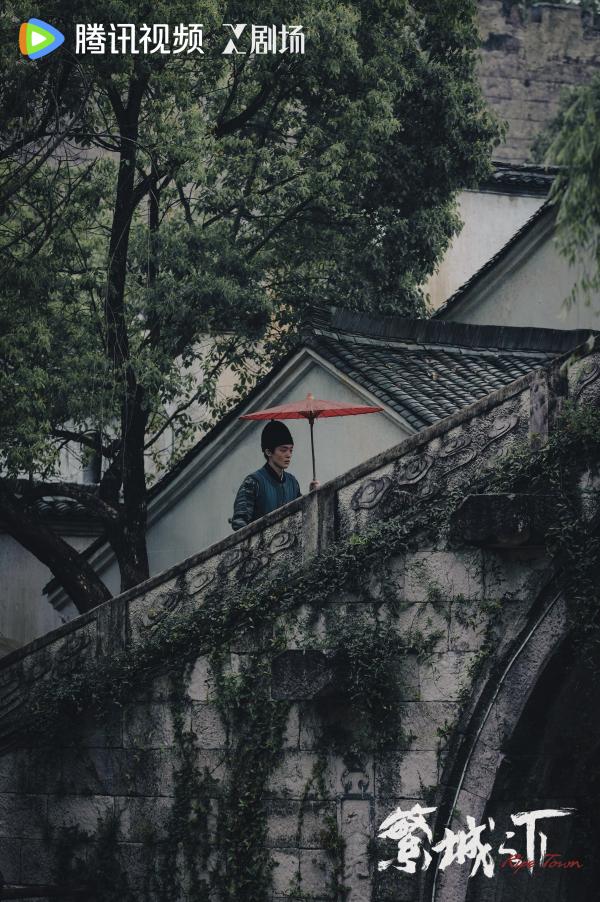
Bai Yufan's third update of the song
Twenty years ago, Leng Capt. killed Qu Sangeng's father, which was an accident in order to cover up the massacre of the Lu family. In the case of the Lu family's extermination, the victim was naturally wronged, but the perpetrator also had his own grievances. Why did Lu Zhi harm his master Lu Yuanbao? "Under the City" depicts the cruel, suspicious, cold and terrifying master Lu Yuanbao, as well as his insult and use of Lu Zhi, his servant.
Lu Zhi's "hatred", the "hatred" of master and slave
In the middle and late Ming Dynasty, due to factors such as land annexation, heavy taxes, corrupt officials, droughts and floods, and epidemics, the people lost their land and other means of production, and eventually became righteous men or servants of wealthy families. The large-scale and widespread use of slaves in society is particularly evident in the Jiangnan region of the Ming Dynasty described in "Under the City".
At that time, the Jiangnan region had been implementing a heavy tax policy, which became a very prominent economic issue in the region. The heavy taxes and servitude put an extremely heavy burden on the people in the Jiangnan area. Many civilians went bankrupt and became slaves. The distinction between masters and slaves and the clear class barriers, and the fact that slaves were not treated as human beings, was very representative of the Jiangnan area at that time. "When a man joins a wealthy family and becomes a slave, he establishes a bond, and his descendants will not be able to leave the family for the rest of his life." "The master treats his slaves in a very unhumane way... and even rapes his wife and daughter, which is not appropriate." What's more, if his property is taken away, no one will ask. What's worse, if his property is privately killed and burned, no one will dare to sue."
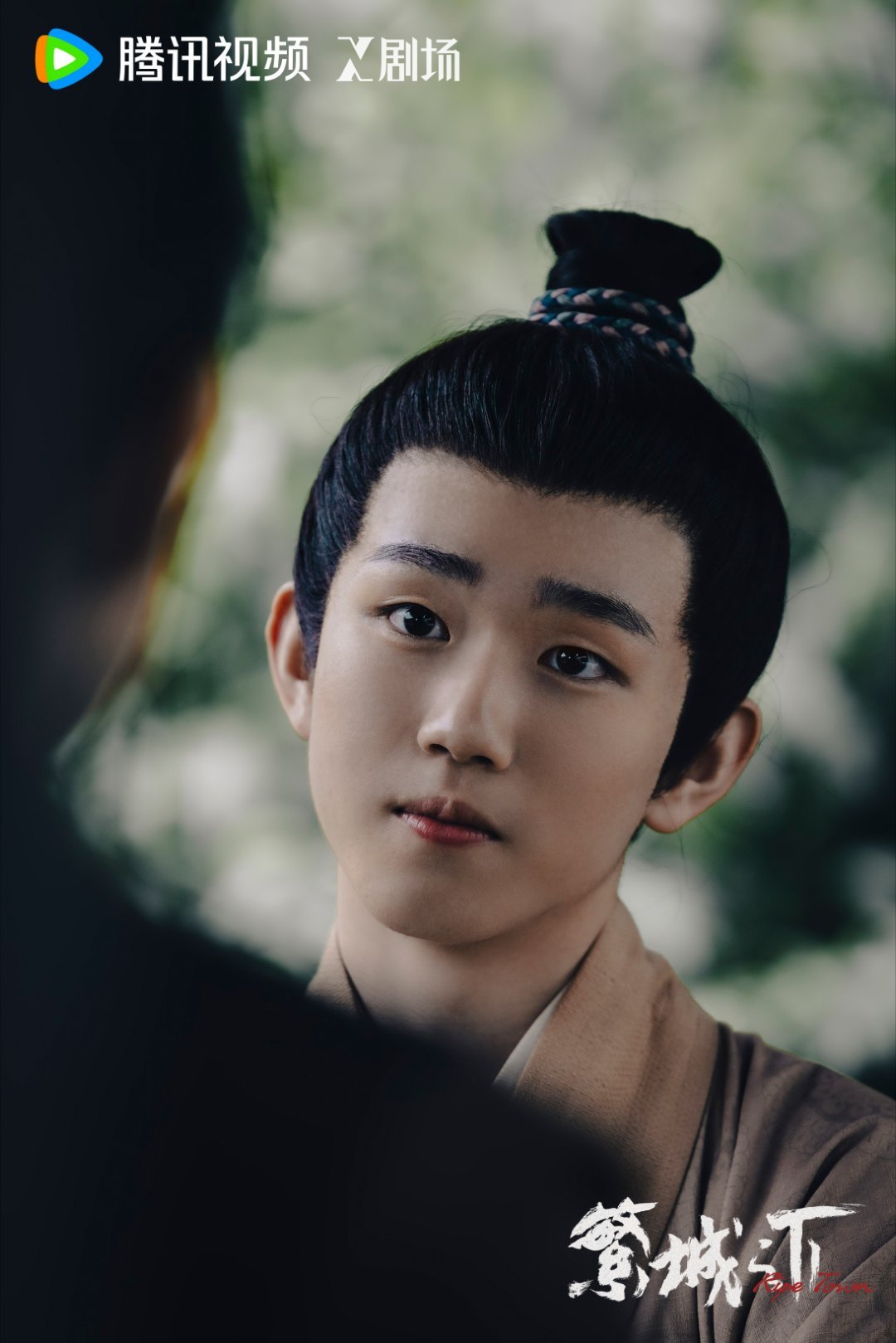
Yu Yao plays Lu Zhi
It can be said that Lu Zhi's biggest "grievance" is the "original sin" brought about by his status as a slave, so that he regards Lu Yuanbao as his father, which is transgression and insult to him, rather than touching and respecting him. In order to get rid of this "original sin", find his "name", and overcome the cruel class restrictions, Lu Zhi chose to kill his master, which is in some contrast with the history of large-scale "slave rebellion" in the late Ming Dynasty. Coincidentally, the main area where slave rebellions occurred in the late Ming Dynasty was also in Jiangnan.
The anonymous "Miscellaneous Notes of Yantang Seeing and Hearing" recorded the slave rebellion in the Taicang area: "During the Yiyou Rebellion, there were cunning slaves among the slaves who advocated the theory of Sochi and used the Ding Revolution... Later, they raised fire Burning the house. There are those who bind the master. Although they are the most friendly and favored, at this time, they all change their faces to tigers and wolves, and the old fists add evil sounds to each other." Sun Zhi's "Er Shen Ye Lu" Volume 8 "Jia Shen April" said: " ... A group of slaves armed with knives killed their master, his father and his son, and immediately burned them to the ground. They spread the fire to all the big households in the countryside and looted them all. Gu Liu and others also advocated leading the slaves from each family into the city and first went to the gentry's house to ask for the indenture. , the family was reduced to pieces, the master was beaten and humiliated, the deed was canceled and burned, and the whole house was empty." The huge difference in political status and economic power between masters and slaves was the internal social factor that prompted the outbreak of the slave rebellion in the Ming Dynasty, and it was also In the story, the character Lu Zhi has the origin of his motivation for killing his master.
Interestingly, on the road to committing evil, the "victim" Lu Yuanbao and the "perpetrator" Lu Zhi were both in a feudal society with strict class barriers. They were at the bottom of the class and achieved class jumps by licking blood. Lu Zhi did some kind deeds when he was young. He helped Chen Wang buy medicine to save his mother, saved Liu Shiqi and his two brothers, and treated the mute Lu Zhong kindly. However, under the influence of Lu Yuanbao and Lu Zhong, Lu Zhi gradually became better than his master in doing evil.
There is a very interesting scene in the play. Zhao Juren falsified accounts and embezzled Lu Yuan's huge sum of money. As a Juren, he was able to rely on his friends from the county magistrate and yelled at Lu Yuan, a businessman who had no reputation. He used a set of rules from the temple, but Lu Yuanbao responded with the rules of the world. A plate of pigeon meat proved that "although my class is lower than yours, I dare to kill you, and I can kill you." Zhao Juren was immediately frightened.

Zhang Xilin plays Lu Yuanbao
The eyes of Lu Zhi, who was standing by and watching, were shining. He obviously agreed with Lu Yuan's "Tao" of violence. In this unreasonable class world, fighting violence with violence and evil with evil is the way to survive. So, since Lu Yuanbao and Lu Zhong fed Lu Zhi with evil, they were destined to be backlashed by the heir of this master.
Maybe some viewers of this plot will question, can a "gangster" really threaten an official Juren master like this? This has to go back to the history of the Ming Dynasty. In the Ming Dynasty, there were many people in the Jiangnan area who entered the officialdom due to the imperial examination. Once they were successful in the imperial examination, they could rise from a poor scholar with no place to stand to a man with fields and vast wealth. Rich. However, for the gentry and landlords in the Ming Dynasty, the status they obtained through the imperial examination was not stable. Once their descendants failed the imperial examination and lost their fame, the original privileges they had, together with the wealth they acquired, were lost and transferred to the hands of the newly formed landlord class. It can be seen that this privileged class is completely different from the hereditary clans in the Wei and Jin Dynasties. Its foundation is unstable and naturally weak. And Zhao Juren in "Under the Flooded City" did fall into decline quickly later on.
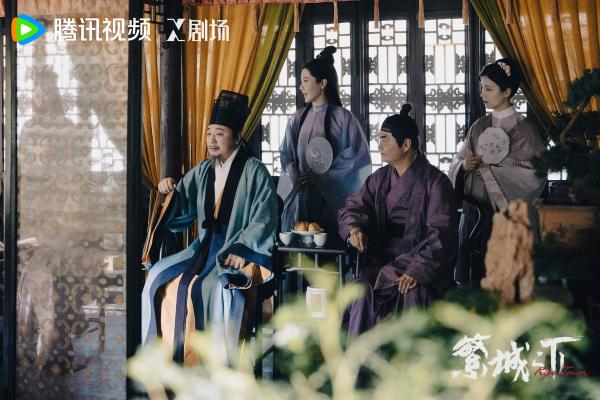
Stills from "Under the City"
If Lu Yuan deserves to be punished for his crimes, Lu Buyou is a pure victim. He represents the destruction of pure kindness and beauty. His injustice is the purest "injustice" that has been circulated for thousands of years in Chinese opera, and Xiao Baozi It comes from the character prototype that has also been circulated in opera for thousands of years: the righteous man. "The Analects of Confucius: Wei Linggong" said: "A man with lofty ideals is a benevolent person; he does not seek life to harm his benevolence; he kills himself to achieve benevolence." Lu Buyou saved his life. Xiao Baozi thought this was "killing oneself to achieve benevolence", so he planned two Ten years to avenge him, but because of lack of evidence and strong opponent, he would rather die and frame Lu Zhi. Look, an ideal righteous figure in classical opera. But the brilliance of the play lies in the inclusion of the character Song Chen.
Song Chen’s “injustice”, the unsolvable “injustice”
The character Song Chen was obviously derived from Tang Yin, a famous painter and poet in the Ming Dynasty. Tang Yin ranked first in the Suzhou Prefectural Examination at the age of sixteen, and ranked first in the Zhongnan Zhili Township Examination at the age of 28. The following year, he entered Beijing to take the National Examination. In the twelfth year of Hongzhi (1499), Xu Jing was implicated in the imperial examination case and was imprisoned and demoted to an official. This clearly corresponds to Song Chen's experience.
In the 6th episode of "Under the City", Song Chen wrote a poem: "I was drunk and couldn't sing for twelve years. I had fun in prison and slept in prison. Don't leave your name in the sea, who will believe that you don't have wine money in your waist." This is adapted from Tang Yin's "Xizhou" "The Song of the Apricot Blossom Fairy" in the twelfth episode once again uses Tang Yin's "Song of the Peach Blossom Temple". The most obvious thing is the names. Song Chen's alias is Zhongqiu, and Tang Yin's alias is Bohu. They correspond to each other.
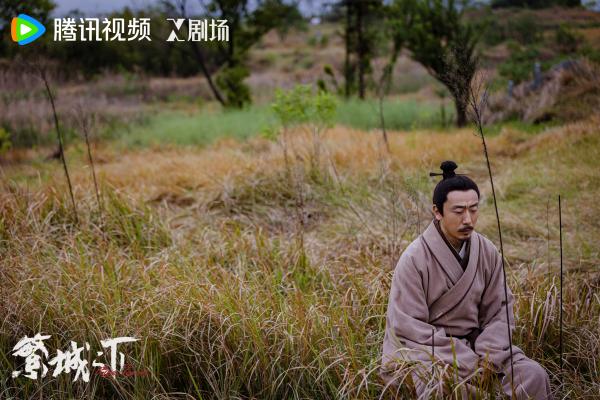
Ning Li as Song Chen
The Xu Jing imperial examination case that ruined Tang Yin's life was rooted in the drama of party strife in the Ming Dynasty. Under political struggles, personal destiny could only be manipulated. Song Chen in "Under the City" was disabled due to torture due to an unjust case. After being rehabilitated, he could no longer serve as an official, nor could he paint or write. Before his death, he envied the county magistrate (Xiao Baozi): "I envy you, your injustice is justified."
Why did Song Chen say that? Isn’t Song Chen’s “enemy” very clear? Aren’t they ministers who are fighting in partisanship? After Taizu of the Ming Dynasty followed the Yuan Dynasty's "three provinces into one province", the authoritarian nature of the feudal political system in the Ming Dynasty intensified, and the imperial power had almost no power checks and balances. "Officials in the Tang Dynasty sat opposite to each other when they saw the emperor, but in the Song Dynasty they withdrew their seats. However, there was still full of respect between the scholar-officials and the emperor. It was said that they 'ruled the world with the scholar-officials'." A friend who studied history discussed with me, "In the Yuan and Ming Dynasties, In the Qing Dynasty, the essence became a 'master-slave' relationship." This change in the relationship between the emperor and the scholar-bureaucrats is a microcosm of the intensification of personal control in the overall society.
Although Song Chen is a scholar, the essence of his "grievance" is no different from that of Lu Zhi. They are both absolute subordination and personal control determined by the "master-slave relationship". But the slave Lu Zhi could burn his "master" Lu Yuanbao, but what about Song Chen? The source of his injustice is directed at the imperial power above the temple, the system and the era. This is an unsolvable injustice and the heaviest injustice in the whole play.
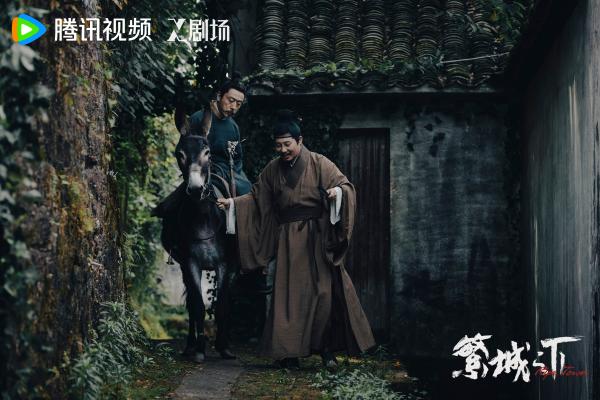
Stills from "Under the City"
Can we just swallow our anger when there is no solution to the injustice? That's not the case. Song Chen doesn't have a way to vent his anger. For example, Qu Sangen's choice for revenge is to kill with a borrowed knife, for example, Xiao Baozi's choice to redress his injustice is to fight violence with violence. Since there is no legal principle in this world that can be trusted, then choose a method that is above the legal principle. But these are not true justice. Justice means that the truth must be made known to the world, and all injustices and injustices can be explained.
Song Chen is the most unjust person in the show, but he is also the cleanest person in the show. Captain Leng once said, "Justice is a long way around." But the only person who stood firm was Song Chen, who was the most unjust.
Compared with Song Chen, Qu Sangen, in order to avenge his grievances, ignored the truth and did not want to touch the source of the grievances. "As long as my grievances are redressed, I don't care about other people's grievances." Xiao Baozi, in order to redress his grievances, ignored the law and To fight violence with violence is not to hope for the truth to be clarified, but to frame the blame and repay injustice with injustice. Their choice is the helplessness of the times. Therefore, Song Chen's persistence in uncovering the truth and adhering to a kind of "procedural justice" is particularly valuable.
When faced with similar difficulties and humiliation, when faced with evil, some people choose to become evil, while others choose to "consistently follow my path."
Finally, I would like to talk about the interesting relationship between Xiao Baozi and Lu Zhi, childhood friends and now enemies. From the beginning of the series, the nature of the two has been foreshadowed. Regarding the childish discussion of "should you steal snacks from someone with a good temper or someone with a bad temper", you have already seen the difference between the two children. Lu Zhi is cunning. Indifferent, Xiaobaozi is kind and loyal. When I first watched this episode, I thought it was just a random sketch, but in the last episode, it ended up focusing on the characters. They force each other to a dead end, and the dying words "Have you ever eaten snails soaked in butter?" take the audience back to their youth. This moment is infinitely sad.
references:
"Qilu Academic Journal" February 1994: Zhao Ji's "New Exploration on the Causes of the Slave Rebellion in the Ming Dynasty"
"Journal of Xuchang Normal University" April 1991: Ni Mingyuan "The "Slave Revolution" Trend in the Late Ming Dynasty"
"Historical Monthly" Issue 4, 2002: Niu Jianqiang "Servants and Servant-Tenant Farmers in the Ming and Qing Dynasties"
"Historical Monthly" Issue 4, 2002: Li Zhiting's "The Ming Dynasty fell in Shenzong debate"
